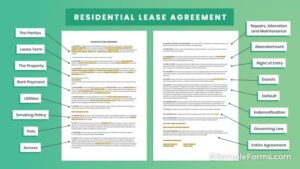
Government debt relief is like a superhero cape for citizens drowning in a sea of red ink—here to save the day! Imagine a world where the burden of debt can be lifted, providing a breath of fresh financial air. This fascinating topic dives into the essence of government debt relief, exploring its significance, the various programs available, and who gets to wear the financial superhero cape.
At its core, government debt relief encompasses a range of initiatives aimed at easing the financial strain on individuals. From student loans to credit card debt, these programs can turn your financial frown upside down. This guide will navigate the exciting realm of options available, eligibility criteria, and handy tips for managing your money like a pro!
Understanding Government Debt Relief

Government debt relief is a financial lifebuoy tossed to citizens who find themselves drowning in a sea of debt. It serves not only to alleviate individual financial burdens but also to contribute to the economic stability of the nation. After all, a nation of financially healthy citizens is like a well-tuned orchestra playing in harmony, rather than a bunch of cats fighting over the last tuna can.
Government debt relief programs come in various flavors, much like ice cream, with each serving a unique purpose. These programs aim to offer assistance to individuals struggling with loans, credit card debt, or mortgages. For instance, there’s loan forgiveness, where the government waves its magic wand and poof!—your student loans disappear. Then there’s debt restructuring, which offers a more manageable monthly payment plan that doesn’t require selling your beloved collection of vintage vinyl records.
Forms of Government Debt Relief Programs
Understanding the different forms of government debt relief can empower citizens to make informed financial choices. Here, we break down some of the most common programs designed to help you breathe easier:
- Loan Forgiveness Programs: Designed primarily for federal student loans, these programs can eliminate a portion or the entirety of your debt based on specific criteria such as years of public service or teaching in underserved areas.
- Debt Consolidation: This program allows individuals to combine multiple debts into a single loan with a potentially lower interest rate, simplifying the payment process and making it easier to keep track of who you owe what.
- Income-Driven Repayment Plans: These plans adjust your monthly payments based on your income and family size, ensuring that you don’t spend every paycheck chasing your student loans like they’re a runaway puppy.
- Bankruptcy Options: While not the first choice for most, filing for bankruptcy can provide a fresh start by discharging certain debts, allowing individuals to rebuild their financial lives from scratch.
Eligibility Criteria for Government Debt Relief Initiatives
Eligibility criteria for accessing government debt relief initiatives can vary widely depending on the program. However, there are some common threads that stitch these programs together. Before delving into an application, it’s crucial to ensure that you meet the qualifications set forth by each program. Here’s a breakdown of general eligibility requirements:
- Income Limits: Many programs require applicants to provide proof of income to ensure they are genuinely in need of assistance, not just looking for a free ride on the gravy train.
- Type of Debt: Specific programs cater to certain types of debt, so it’s essential to check if your particular financial burden qualifies for relief. Student loans, credit card debts, and other loans may fall under different umbrellas.
- Loan Status: Some programs may only apply to loans that are in good standing or have already gone into default, which can feel like walking a tightrope over a pool of jellyfish.
- Time-Based Criteria: Programs such as loan forgiveness often require a minimum number of years of service or payments before you can reap the benefits, ensuring that you’re not just popping in for a quick snack.
“A nation of financially healthy citizens is like a well-tuned orchestra playing in harmony.”
Financial Resources for Debt Management

Managing debt can feel like juggling flaming swords while riding a unicycle on a tightrope. Luckily, there are resources available to help you navigate through financial turbulence without losing your balance—or your sanity. With a variety of financial assistance options at your disposal, debt relief can transform from a daunting monster into a manageable house pet, provided you know where to look.Credit counseling services are your trusty sidekicks in the quest for debt relief.
These organizations work with you to assess your financial situation and create a personalized plan to tackle your debts. Think of them as your financial GPS, guiding you through the twists and turns of budgeting, credit management, and even negotiations with creditors. They can help you understand your rights, provide financial education, and offer solutions tailored to your circumstances.
Credit Counseling Services Overview
Credit counseling services play a vital role in providing individuals with the tools and knowledge necessary for effective debt management. These services typically offer:
- Financial Assessments: A thorough examination of your income, expenses, and debts, helping you understand where you stand financially.
- Debt Management Plans (DMPs): Customized repayment plans that allow you to pay off your debts in a structured manner, often with reduced interest rates.
- Educational Workshops: Classes on budgeting, saving, and managing credit to equip you with essential financial skills for the future.
“Credit counseling can be the light at the end of the financial tunnel, illuminating the path to financial freedom!”
Effective Debt Consolidation Strategies
Debt consolidation can feel like playing a game of Tetris, where you’re maneuvering to fit all those debts into one neat block. Here are some effective strategies that can help you consolidate your debts efficiently:
- Balance Transfer Credit Cards: Transfer high-interest debt to a credit card with a lower interest rate, allowing you to save on interest payments. Just be wary of fees and the expiration of promotional rates!
- Personal Loans: Take out a personal loan to pay off multiple debts. This can simplify your payments and potentially lower your interest rate if you qualify for a good credit score.
- Home Equity Loans: If you own a home, consider using your home equity to consolidate debts. However, be mindful that your home is collateral, so make sure you can handle the payments!
“Debt consolidation isn’t about escaping debt; it’s about managing it smarter!”
Resources for Debt Management Assistance
For those seeking help with debt management, numerous resources are available to guide you on your financial journey. Here’s a list of notable websites and hotlines designed to assist individuals in need:
- National Foundation for Credit Counseling (NFCC): Visit their website at nfcc.org for access to certified credit counselors and a wealth of educational resources.
- Credit Counseling Canada: This organization offers free consultations and can be reached at 1-866-404-2020. They provide quality services tailored for Canadian consumers.
- Consumer Financial Protection Bureau (CFPB): Check out their website at consumerfinance.gov for tips and tools regarding debt management.
- Debt.org: This informative site offers a plethora of resources, including articles, guides, and a hotline at 1-800-810-0989 for personalized advice.
“Remember, seeking help is a sign of strength, not weakness!”
Exploring Related Financial Concepts
When it comes to managing debt, there are more avenues than just the classic sword and shield approach. Think of your finances as a complex puzzle where every piece—home equity loans, leasing options, and estate planning trusts—can play a crucial role in achieving a well-rounded strategy. Let’s dive into these financial concepts and see how they can work for or against you in your quest for debt relief.
Home Equity Loans in the Context of Debt Relief
Home equity loans can be a double-edged sword, offering a lifeline to those in need of immediate cash while simultaneously holding the potential for future financial peril. Home equity loans allow homeowners to borrow against the equity they’ve built in their homes—think of it as a financial piggy bank hidden behind your front door. However, this can lead to complications if not handled carefully.
To understand the implications, consider the following:
- Access to Funds: Home equity loans can provide substantial funds for debt repayment, potentially reducing high-interest credit card debt.
- Tax Benefits: Interest on home equity loans may be tax-deductible, which can ease the burden if you’re paying the IRS instead of a lender.
- Risk of Foreclosure: If you default on the loan, your home is at risk, which makes this option a high-stakes gamble.
“Borrowing against your home is like giving your financial future a chance to play roulette; just make sure you know where the ball’s gonna land!”
Advantages and Disadvantages of Leasing as Financial Options
Leasing has become a popular alternative to buying, and understanding its pros and cons can help those in debt management make informed decisions that align with their financial goals.Leasing can be particularly appealing for those who prefer lower monthly payments and the ability to drive a new vehicle every few years. However, it comes with its own set of challenges.Here are some key points to consider:
- Lower Payments: Leasing often requires lower upfront costs and monthly payments compared to purchasing outright.
- Maintenance Coverage: Many leases include warranties that cover maintenance, reducing long-term expenses.
- No Ownership: At the end of the lease, you have no equity in the asset, which can feel like renting your financial future.
- Mileage Limits: Leases typically impose mileage restrictions, which can lead to costly penalties if exceeded.
“Leasing is like borrowing your friend’s favorite jacket; it’s great while it lasts, but don’t be surprised when you have to give it back without a wardrobe upgrade!”
Significance of Estate Plan Trusts in Wealth Preservation
In the rollercoaster world of debt management, estate planning trusts serve as a stabilizing force, safeguarding your wealth through unforeseen financial storms.Trusts can be a powerful tool for managing assets and ensuring they are passed down to beneficiaries without incurring hefty taxes or legal complications. Their role in wealth preservation becomes particularly significant when facing debt challenges.Here are some notable implications:
- Asset Protection: Trusts can help shield assets from creditors, ensuring your wealth is preserved for future generations.
- Tax Efficiency: Properly structured trusts can minimize estate taxes, allowing more of your wealth to stay within the family.
- Control Over Distribution: Trusts can specify how and when your assets are distributed, which can prevent squabbles among heirs and protect beneficiaries from poor financial decisions.
“An estate plan trust acts like a financial bouncer—keeping the riff-raff (i.e., creditors) away from your assets while ensuring only the VIPs (family) get in!”
Epilogue
In conclusion, navigating the world of government debt relief can feel like a complex maze, but with the right knowledge and resources, you can find your way to financial freedom. Whether you choose credit counseling, debt consolidation, or explore the finer points of home equity loans, the journey towards a debt-free life has never been more attainable. So grab your cape and get ready to tackle that debt—financial freedom is just around the corner!
FAQ Resource
What is government debt relief?
Government debt relief refers to programs and initiatives designed to reduce or eliminate financial obligations for individuals struggling with debt.
Who qualifies for government debt relief programs?
Eligibility varies by program but typically includes factors like income level, type of debt, and financial hardship.
Are there risks associated with government debt relief?
Yes, while many programs are beneficial, they can sometimes lead to extended repayment periods or affect your credit score.
How can I find government debt relief resources?
You can start by visiting government websites, local financial institutions, or contacting credit counseling services for assistance.
Can debt relief programs help with student loans?
Absolutely! Many government debt relief programs specifically target student loans to help borrowers manage or reduce their debt.





